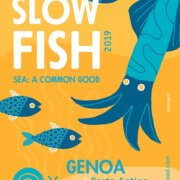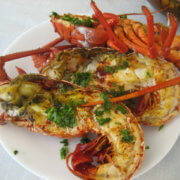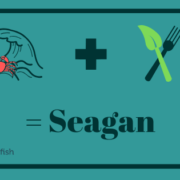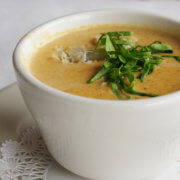We are proud to have fantastic staff here at Scottish Shellfish who have a real passion for our produce, the Scottish outdoors, and who embody our sustainable and environmentally friendly ethos – we think they are so great we want you to meet them too!
We would like to introduce you to Wojciech Zdzisinski who is our AV Hall Manager, to give you a glimpse into the work he does for Scottish Shellfish.
Wojciech Zdzisinski
What does your role at Scottish Shellfish involve?
I help with sourcing the best raw materials based on quality and I also oversee the different stages of production and I manage some of our staff.
What do you enjoy most about working at Scottish Shellfish?
I really enjoy the challenges of the day to day production work in our factory, I enjoy the pace of the role and I am lucky to work with some really great people.
What have been the main changes you have seen during your time at Scottish Shellfish?
During my time here we have introduced part-automatization of one of the lines in the Final Pack areas of production. We have also introduced bio-degradable cases for some of our current lines and in future all live mussel products will have bio-degradable packaging.
What was your 2019 highlight?
I got a job promotion which was great!
If you could achieve one thing in 2020 what would it be?
We all need to do our bit to help the planet so on a personal level I am aiming to reduce the amount of waste I produce at home and recycle more.
Do you have a favourite shellfish recipe you can?
Scallops wrapped in bacon - wrap bacon around scallops then secure in place with cocktail stick. Drizzle lemon over the scallops and oven bake at 180 degrees until bacon is crisp – delicious!
What is your favourite Scottish Shellfish product?
Any product from the Coquille range – all really tasty!
Do you have a favourite Scottish holiday destination or place?
St Andrews, Glencoe and also the Devil’s Pulpit which is a hidden gem not a lot of people have heard about. It is in Finnich Glen, Stirlingshire and it is a must see!
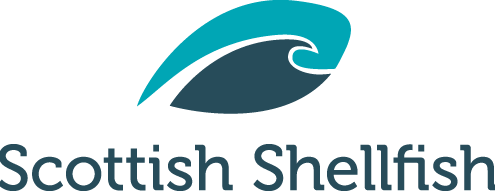


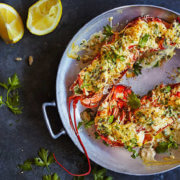
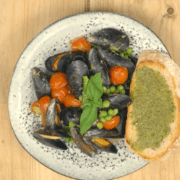 https://www.fishisthedish.co.uk/recipes/pesto-mussels-toast
https://www.fishisthedish.co.uk/recipes/pesto-mussels-toast https://www.allrecipes.com/recipe/200657/crab-rangoon/
https://www.allrecipes.com/recipe/200657/crab-rangoon/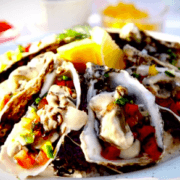 http://www.foodnetwork.co.uk/recipes/salsa-oysters.html
http://www.foodnetwork.co.uk/recipes/salsa-oysters.html